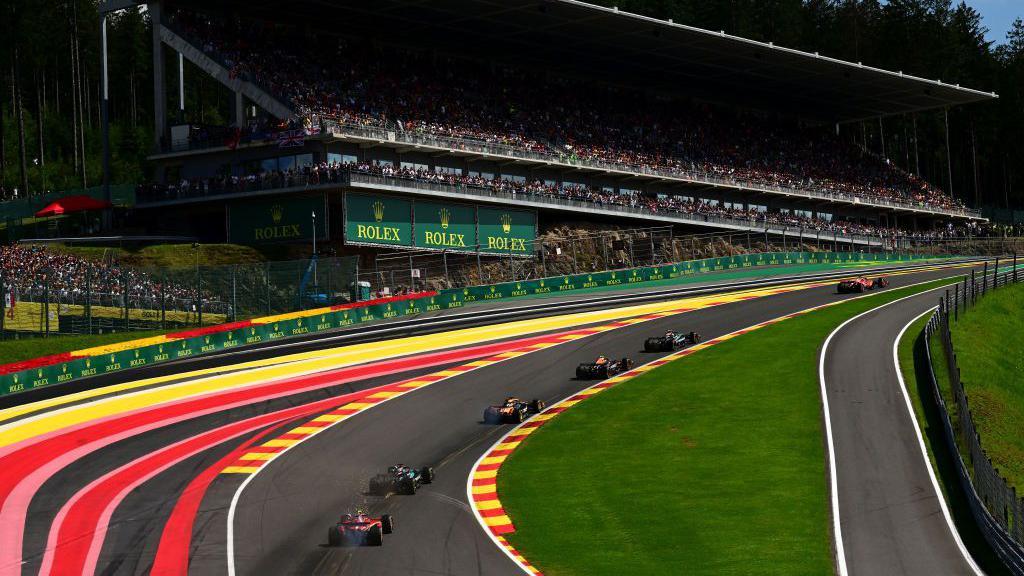Belgian GP agrees new F1 rotational deal until 2031

The Spa-Francorchamps circuit is the longest on the Formula 1 calendar at 7.004km
- Published
The Belgian Grand Prix has secured a new contract that will keep it on the Formula 1 calendar for four out of six years from 2026-2031.
It is the first deal of this type signed by F1, which is seeking to find ways of accommodating new events in an already crowded calendar.
The contract dictates that the historic Spa-Francorchamps circuit will host races in 2026, 2027, 2029 and 2031.
However, in 2028 and 2030 Belgium will be replaced by another race.
The details of which other venues will rotate with Spa are yet to be confirmed.
Barcelona, in Spain, and Imola, in Italy, both want to keep their races, even though they are out of contract after this year.
The Circuit de Barcelona-Catalunya is being replaced as the venue of the Spanish Grand Prix by a new circuit in Madrid from next season.
The Dutch Grand Prix's deal ends after 2026 but organisers in the Netherlands may want to revive it at some point, and F1 is also exploring ways of returning the French and German races to the calendar.
France is the birthplace of motorsport, while Germany is also one of the oldest venues, but both have become unviable in recent seasons.
France returned to the schedule in 2018 but fell off the calendar again after 2022, while Germany has not hosted a race since 2019.
A return of the Turkish Grand Prix, last held in 2021 after returning to the calendar in 2020 as a result of the pandemic, is also an option.
Rotation of European races also gives F1 an option to add new races outside the sport's European heartland, which currently accounts for about one third of the calendar.
F1 is working on a race in Rwanda, in central Africa, on a new circuit being built outside the capital Kigali, which will not happen before 2028 at the earliest.
Thailand is also interested in a race, but that would likely not be before 2030. The prospects of a return of South Korea to the calendar, which had been explored in both Seoul and Busan, are diminishing.
F1 president Stefano Domenicali said: "The Belgian Grand Prix was one of the races that made up our maiden championship in 1950, so as we kick off our 75th anniversary year it is fitting that we can share the news of this important extension.
"Spa-Francorchamps is rightly lauded by drivers and fans alike as one of the finest race tracks in the world and it has played host to some incredible moments over its many seasons in Formula 1.
"In recent years it has undergone significant work to improve the facility and overall fan experience, and I would like to pay tribute to the promoter and the Government of Wallonia for their dedication and passionate support for F1 in Belgium."
Last year brought F1's longest ever season, at 24 races, a schedule that continues this year, which starts in Australia on 14-16 March.
The team's contracts with F1 dictate a maximum of 25 races a year.
Those deals have to be renegotiated for the period starting in 2026, F1's next regulatory period, but there is widespread agreement that the sport is already at the upper limit of what is possible in terms of the calendar, and the maximum number of races is not expected to change in the new contracts.